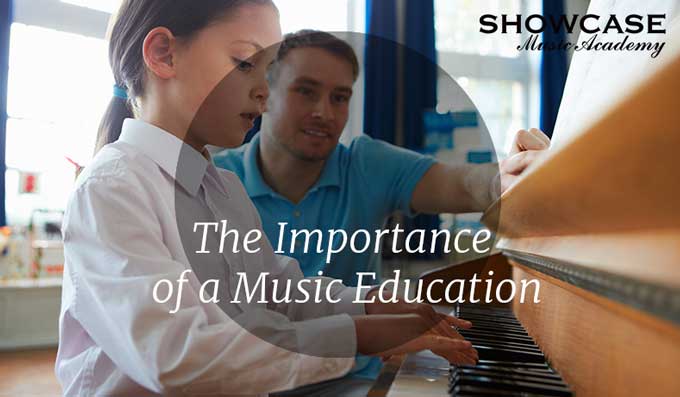
The importance of a music education.
In a day and age where both youth and adults pursue instant gratification, is music education important? Is there even a point in practicing an instrument (that will steal our precious hours), when social media is prominent and economy seem to be of most importance?
The short answer is definitely yes.
The longer answer is somewhat more complex, but all the more interesting.
Musical Training = Academic Success
There are real data from scientific studies, that show direct correlations between musical training and academic success. I would like to emphasize this by saying – music is a form of science which stimulate memorization, motor skills and coordination. It also points towards other developments such as curiosity, individualism and the ability to express oneself. When interpreting a piece, the musician is telling us a story through tones rather than words. This is because music is a language.
Early Exposure to Mathematical Patterns
Music pieces are often mathematical in their construction and somewhat architectural in their design. This allows basic mathematics to be accessible for children, especially at an early age. As music pieces are based on rhythm and various beats, children will be introduced to the notion of arithmetics, and also to recognize patterns in their construction.
Discipline and Time Management
Further, music studies teaches discipline and time management. Mastering an instrument is not something you can achieve in a week. It is not easy and it require many years of work and effort. It teaches children and youths patience, diligence, and efficient organization of time should they want to accomplish something, incrementally.
A Sense of Accomplishment
Studying any instrument can be highly rewarding. The moment you conquer a particularly challenging piece, you will indeed feel a heightened sense of confidence and self-esteem.
Healthy Emotional and Cerebral Development
For me, the most rewarding aspect of my musical studies is the various cultures I got to experience as a musician.
It made me grow emotionally – allowing me to see the world in a different way – and revealing new social and philosophical opportunities to explore.
Music is also history. Playing pieces truly requires classical insights in which demands research. Leadership and teamwork skills are required at a later stage of music training, should you enter into the realm of ensemble playing.
I sincerely believe that music education should have a place in your (or your children’s) life. I would go as far as to say – it is a crucial art to obtain.
Read on:
https://www.ncbi.nlm.nih.gov/pmc/articles/PMC4411999/
https://psychcentral.com/lib/the-power-of-music-to-reduce-stress/









